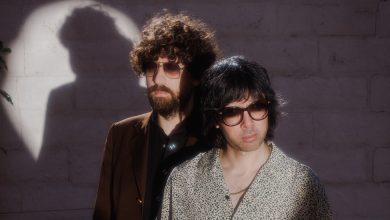Hasan Minhaj Addresses Embellished Stories Detailed by The New Yorker

The comedian Hasan Minhaj released a 21-minute video on Thursday, addressing a New Yorker article that chronicled fabrications of personal experiences he recounted in his stand-up specials, and apologizing to those who felt “betrayed.”
Minhaj, whose politically-minded Netflix show “Patriot Act” ran from 2018 to 2020, posted the video — which he called a “deep dive on my own scandal” — nearly six weeks after the magazine published its article. In it the reporter, Clare Malone, parsed the details of his biographical comedy around growing up as a Muslim American and an Asian American.
“I took a beat before responding because, like you, I have been paralyzed by the news coming out of the Middle East, and I have been processing all the criticism that has come my way,” Minhaj said in the video. “And I just want to say to anyone who felt betrayed or hurt by my stand-up, I am sorry. I made artistic choices to express myself and drive home larger issues affecting me and my community, and I feel horrible that I let people down.”
But Minhaj said he felt as if he came off as a “psycho” in the article, and he defended fictionalizing parts of his stand-up anecdotes as a way to emphasize truths about racism and threats that he had experienced.
One anecdote under scrutiny, which he told in a 2017 stand-up special, involved a heart-rending story from his high school prom. On the night of the dance, he said in the special, his date’s mother told him on her doorstep that she did not want extended family “in Nebraska” seeing photos of her daughter, who was white, beside him.
The New Yorker reported that Minhaj’s so-called date turned him down days before the prom.
Minhaj, who spoke with Malone for her article, acknowledged in his video that there was no encounter at the doorstep as he had described, but he maintained that the girl’s mother “did really say that” a few days before prom.
“I created the doorstep scene to drop the audience into the feeling of that moment,” he said. Minhaj asserted that the magazine did not properly consider email correspondence between him and the girl that he said “showed my race was a factor in my prom rejection.”
In a statement posted on X, formerly known as Twitter, Malone and The New Yorker said that they stood by the article and that it was carefully reported and fact-checked and that it included his perspective at length. The piece involved interviews with more than 20 people, including former staff members on Minhaj’s Netflix show and “The Daily Show,” where he rose to prominence as a correspondent, according to the statement.
“Hasan Minhaj confirms in this video that he selectively presents information and embellishes to make a point: exactly what we reported,” the statement said.
The New Yorker article caused debate among comedians, critics and fans about to what degree audiences expect stand-up comedy to be factual. In his video, Minhaj called the fact-checking on “Patriot Act” — which tackled subjects such as immigration, policing and affirmative action — as “extremely rigorous.” However, he said, he viewed his work as a “storytelling comedian” differently: “I assumed that the lines between truth and fiction were allowed to be a bit more blurry.”
Minhaj also addressed the article’s interrogation of a story he told in his 2022 stand-up special in which he said that he once opened a letter filled with white powder that fell on his daughter. In his telling, he and his wife took their daughter to the hospital and discovered after hours in the waiting room that the powder was not anthrax, as they had feared.
In the video, Minhaj confirmed The New Yorker’s reporting that he did not take his daughter to a hospital. He said that she was nearby when he opened an envelope with white powder, explaining that the fabrication was meant to highlight the “shock and fear” that he and his wife felt that day.
In another anecdote from his 2022 stand-up special, Minhaj said he fell victim to the U.S. government’s spying on Muslim communities in the wake of the Sept. 11, 2001, terrorist attacks. He told the audience that when he was a teenager, an F.B.I. informant slammed him against a cop car while trying to entrap him at the gym. In reality, Minhaj acknowledged in the video, his story stemmed from being “physically harassed” while playing basketball by whom he suspected were undercover agents.
“I wanted to recreate that feeling — that only Muslims felt — for a broad audience, the feeling of paranoia and vindication, tension and release,” Minhaj said of the embellishment, adding, “That was my artistic intent.”



